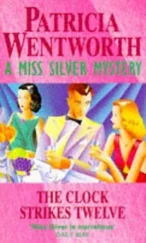Her hand dropped slowly to her side. She saw Renata’s mouth open protestingly, and there came on her a wild impulse to stave things off, to have time, just a little time before she let that secret in.
“We’ve got to change clothes,” she said. “Quick, give me that skirt and take mine. Yes, put on the coat, and I’ll give you my shoes, too. My hat’s on the bed; you’d better put it on.”
Renata obeyed. A resentful feeling of being hustled, ordered about, treated like a child, was upon her; but Jane moved and spoke so quickly, and seemed so sure of herself, that there seemed no opening for protest. She thought Jane’s blue serge shabby and old fashioned—not nearly as nice as her own—and Jane’s shoes were terribly worn and needed mending.
“Now, listen,” said Jane.
“If Arnold likes to go to my rooms and pay up two weeks’ rent, he can get my box and all my other clothes for you. There’s not very much, but it’ll be better than nothing. I’ll write a line for him to take, and put the address on it. And will you please remember now and from henceforth that you are Jane Renata Smith, and not Renata Jane Molloy?”
Jane was scribbling a couple of lines as she spoke, and as she turned and gave the paper into Renata’s hand, she knew that she must decide now. The moment of grace was up, and whether she bade Renata speak or be silent, there could be no drawing back.
“What were you going to tell me?” she said.
Renata stood silent for a long minute. She was twisting and turning the slip of paper which Jane had given her. She looked down at her twisting fingers; her breath began to come more quickly. Then with great suddenness she pushed the note into her pocket, and caught at Jane with both hands.
“Yes, I must tell you—I must. It will be coming nearer all the time, and I must tell some one, or I shall go mad.”
“Tell me, then,” said Jane. “You were walking in your sleep, and you opened the door and heard—what did you hear?”
Jane’s eyes were bright and steady, her face set. She had taken her decision, and her courage rose to meet an unknown shock.
“I was walking in my sleep,” repeated Renata, in a low, faltering voice, “and I opened the door, and I heard——”
“What did you hear?”
“There was a screen in front of me, and just beyond the screen a man talking. I heard—oh, Jane, I heard every single word he said! I can’t forget one of them—if I could, if I only could!”
“What did you hear?” said Jane firmly.
Renata’s grip became desperate. She leant forward until her lips touched Jane’s ear. In a voice that was only a breath, she gave word for word, sentence by sentence, the speech in which Number Four had proclaimed the death sentence of the civilised world. It was just a bald transcript like the whisper of a phonograph record, as if the words and sentences had been stamped on an inanimate plate by some recording machinery, to be released again with utter regularity and correctness.
Every vestige of colour left Jane’s face as she listened. Only her eyes remained bright and steady. Something seemed to knock at her heart. Renata’s last mechanical repetition died away, and with a sob of relief she flung her arms round Jane.
“Oh, Jane, I do hope they won’t kill you! Oh, I do hope they won’t!”
“So do I,” said Jane.
She detached herself from Renata, and as she did so, both girls heard the same thing—from beyond the two closed doors the groan and grind of the lift machinery in motion.
“They’ve come back,” said Renata, in a whisper of terror.
Jane’s hand was on the electric-light switch before the words had left Renata’s lips.
As darkness sprang upon the room she had the door open. Her grip was on Renata’s wrist, her arm about Renata’s waist, and they were in the hall. It seemed pitch black at first, with a gloom that pressed upon their eyes and confused the sense of direction.
The lift rose with a steady rumble.
Then, as Jane stared before her, the oblong of the window sprang into view. She took a step forward and felt Renata’s head against her shoulder.
“I’m going to faint,” came in a gasp.
“Then you’ll never see Arnold again. Do you want to be caught like this?”
“Jane, I can’t.”
Jane dragged her on.
“Renata, you rabbit!—if they don’t kill you, I will. Faint in Bolivia as much as you like, but I forbid you to do it here.”
“Oh, Jane!”
Jane’s arm felt the weight of a limp, sagging figure, but they had reached the window. From the sill Arnold bent, listening anxiously.
“Quick!” gasped Jane.
And, as his arm relieved the strain, she pinched Renata with all her might. There was a sob—a gasp—Arnold lifted, Jane pushed, and somehow the thing was done. Arnold and Renata were outside, crouched down between the parapet and the window, whilst Jane leaned panting against the jamb.
As the lift stopped with a jerk, her rigid fingers drew the window down and fastened it. Now, horribly loud, the clang of the iron gate. Steps outside—voices—the grate of a key in the lock.
Jane knew now what Renata had felt. Easy, so easy to yield to this paralysis of terror, and to stand rooted there until they came! With all her might she pushed the temptation from her and roused to action.
Thank Heaven, she had had no time to put on Renata’s shoes!
After the first movement strength and swiftness came to her. She was across the hall without a sound. The bedroom door closed upon her. As it did so, the door of the flat swung wide.
Table of Contents
Jane stood in the dark, her hand upon the door knob. Slowly, very slowly, she released it. As she leaned there, her head almost touching the panelling, she could hear two men talking in the hall beyond. They spoke in English, but only the outer sound of the words came to her.
With an immense effort she straightened herself, and was about to move away when a thought struck her like a knife-blow—the key—the second tell-tale key—if she had forgotten it!
Her hand slid back, touched the cold key, turned and withdrew it, moving with a steady firmness that surprised herself.
Then she made a half-turn and tried to visualise the room as she had seen it in the light.
Immediately opposite, the cupboard with the looking-glass panel. The window in the right-hand wall, and the bed between window and cupboard. At the foot of the bed a chair, and on the same side as the window a chest of drawers with a looking-glass upon it and Renata’s plain schoolgirlish brush and comb.
When she had placed everything, Jane began to move forward in the direction of the window. Her left hand touched the rail of the bed-foot, her right, groping, brushed the counterpane and rested on something oddly familiar. Her heart gave a sudden jerk, for this was her own bag, which Renata should have taken. She opened it with quick, trembling fingers, took out her handkerchief, and then stuffed the bag right down inside the bed.
A couple of steps brought her to the window, and she pressed closely to it, listening, and wished she dared to open it. There was no sound from outside. She leaned her forehead against the glass, and wondered how many years had passed since the morning. It seemed impossible for this day to come to an end.
Then quite suddenly a key turned in the lock, and the door opened, not widely, but as one opens the door of a room where some one is asleep. A man’s head was silhouetted against the hall light. Part of his shoulder showed in a dark overcoat.
He spoke, and a hint of brogue beneath a good deal of American twang informed Jane that this was her official father.
“Are you awake, Renata?”—and, as he asked the question, a second man came up behind him and stood there listening.
Читать дальше












